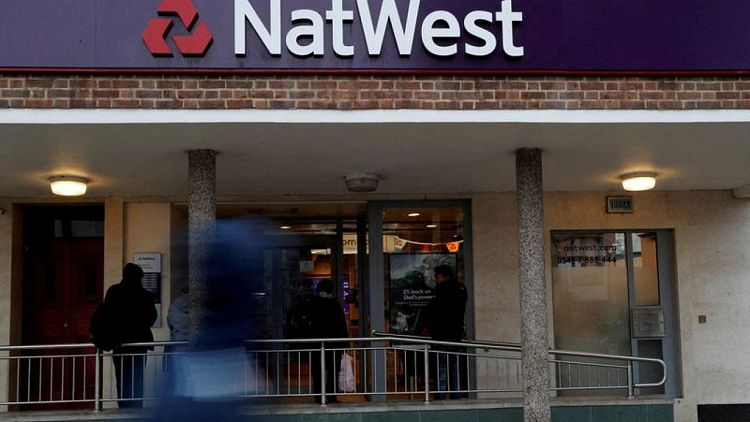By Huw Jones and Iain Withers
LONDON -British state-backed bank NatWest has returned to majority private ownership, 14 years after its bailout by taxpayers at the height of the global financial crisis.
The government's stake in the former Royal Bank of Scotland will be cut below 50% after NatWest agreed to buy 1.2 billion pounds ($1.58 billion) of its shares back from the state.
The deal is a milestone in the bank's long road back to financial health since its 2008 rescue, when its near-collapse threatened to crater Britain's economy.
The lender - which once had assets of 2.2 trillion pounds, more than double the size of the British economy - is now a fraction of that size after deep cost-cutting and is almost entirely focused on domestic consumers and businesses.
Despite a turnaround in NatWest's finances, the bailout remains a costly one for taxpayers who will have to shoulder billions of pounds in losses.
Each of the five sales of stock so far have been well below the bailout price of 502 pence per share, while the government and the bank have long argued that the 45 billion pound rescue was necessary and it is unrealistic to expect a profit.
The latest sale, at 220.5 pence per share, will lower the government's stake to 48.1% from 50.6% and is expected to settle on March 30.
"Reducing government ownership below 50% is an important milestone for NatWest Group and a further demonstration of the progress we are making," CEO Alison Rose said.
NatWest shares were up 2% following the news.
"We will continue to prioritise delivering value for money for the taxpayer as we take forward this plan," said Treasury minister John Glen.
NatWest has remained on the public's books much longer than other banks bailed out in the financial crisis.
Rival Lloyds was returned to full private ownership five years ago for a small profit, although this did not account for inflation.
NatWest moving to majority private ownership is likely to make little practical difference as the government has been a largely hands-off owner for years.
Nonetheless, the government ceding majority control removes the risk of that changing. Britain's opposition Labour Party has in the past laid out policies to nationalise or break up the bank.
NatWest swung to a hefty profit last year on the back of Britain's economic recovery, but warned soaring inflation was starting to bite.
"NatWest is finally free of state control," said AJ Bell investment director Russ Mould.
"Though any champagne might have to be put on ice given the challenges facing the bank from the cost-of-living crisis and the risks of mounting bad debts."
($1 = 0.7609 pounds)
